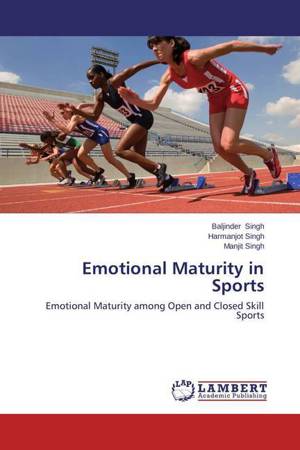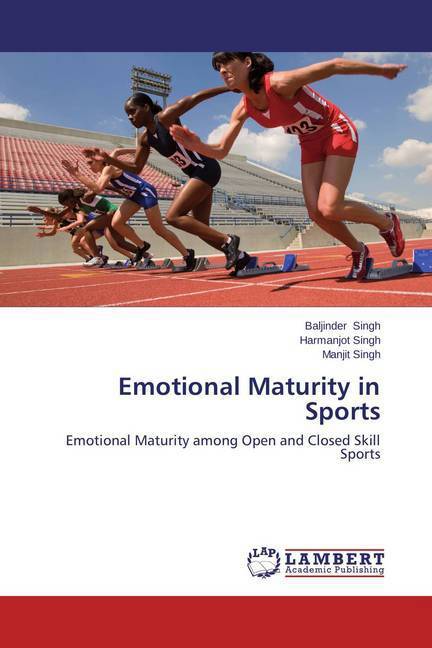
- Afhalen na 1 uur in een winkel met voorraad
- Gratis thuislevering in België vanaf € 30
- Ruim aanbod met 7 miljoen producten
- Afhalen na 1 uur in een winkel met voorraad
- Gratis thuislevering in België vanaf € 30
- Ruim aanbod met 7 miljoen producten
Zoeken
Emotional Maturity in Sports
Emotional Maturity among Open and Closed Skill Sports
Baljinder Singh, Harmanjot Singh, Manjit Singh
Paperback | Engels
€ 61,95
+ 123 punten
Omschrijving
Many studies have shown the gender difference in emotional maturity in college students. Aleen & Sheema suggested that female students were less emotionally stable as compared to male students. Males are more social as they have more social interaction, more stable as they face more challenges in their lives, feeling more independent which enabled them to become more emotionally stable and led them to perform better on emotional maturity as compared to their female counterparts. However, Boyd and Huffman in which they revealed that females were more emotionally mature than males in the same age group. Subbarayan and Visvanathan in their study on emotional maturity among college students revealed that the emotional maturity of college students is extremely unstable. Stephen examined the neuroticism and emotional maturity among college female students and found that the individuals who scored higher neuroticism were having a low level of emotional maturity.
Specificaties
Betrokkenen
- Auteur(s):
- Uitgeverij:
Inhoud
- Aantal bladzijden:
- 92
- Taal:
- Engels
Eigenschappen
- Productcode (EAN):
- 9783659629211
- Verschijningsdatum:
- 5/11/2014
- Uitvoering:
- Paperback
- Afmetingen:
- 150 mm x 220 mm
- Gewicht:
- 145 g

Alleen bij Standaard Boekhandel
+ 123 punten op je klantenkaart van Standaard Boekhandel
Beoordelingen
We publiceren alleen reviews die voldoen aan de voorwaarden voor reviews. Bekijk onze voorwaarden voor reviews.







